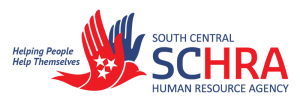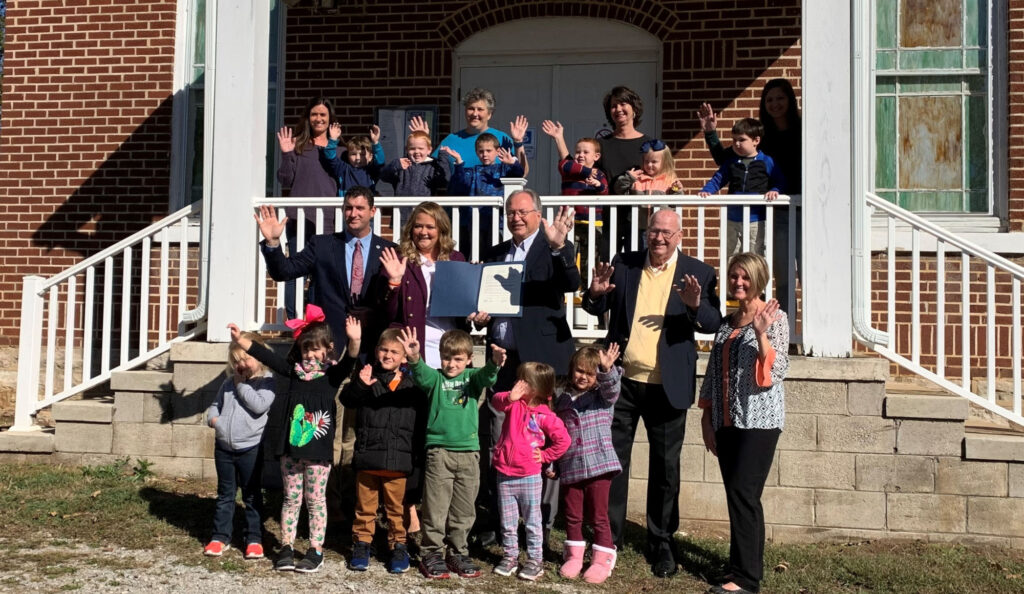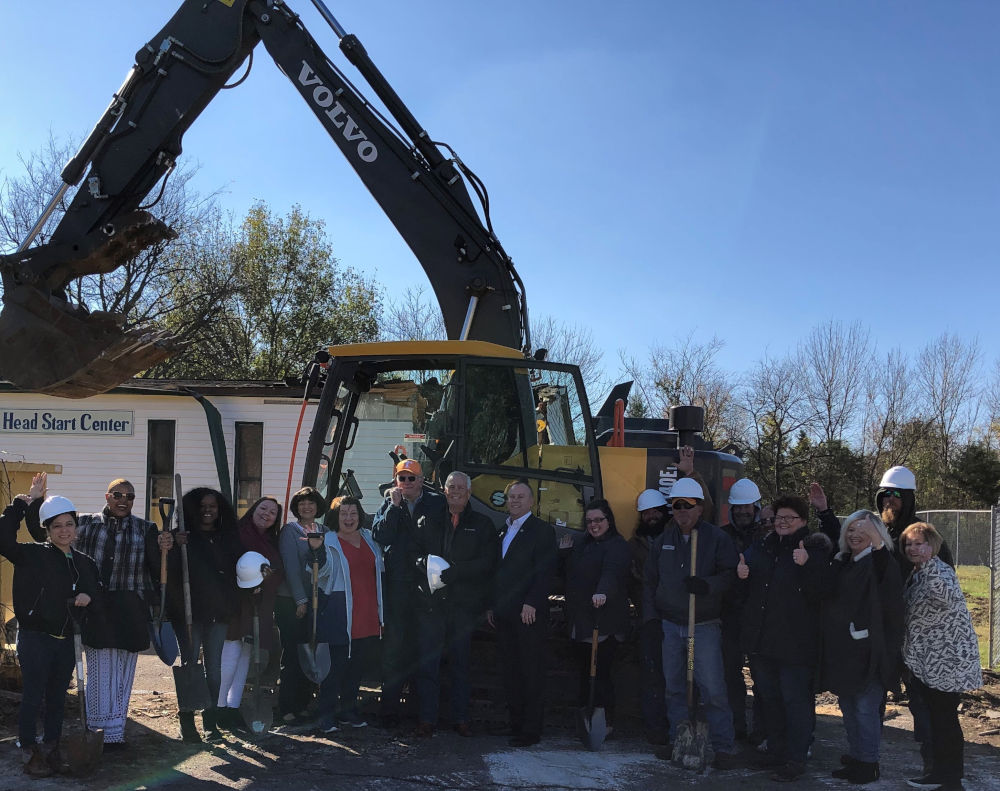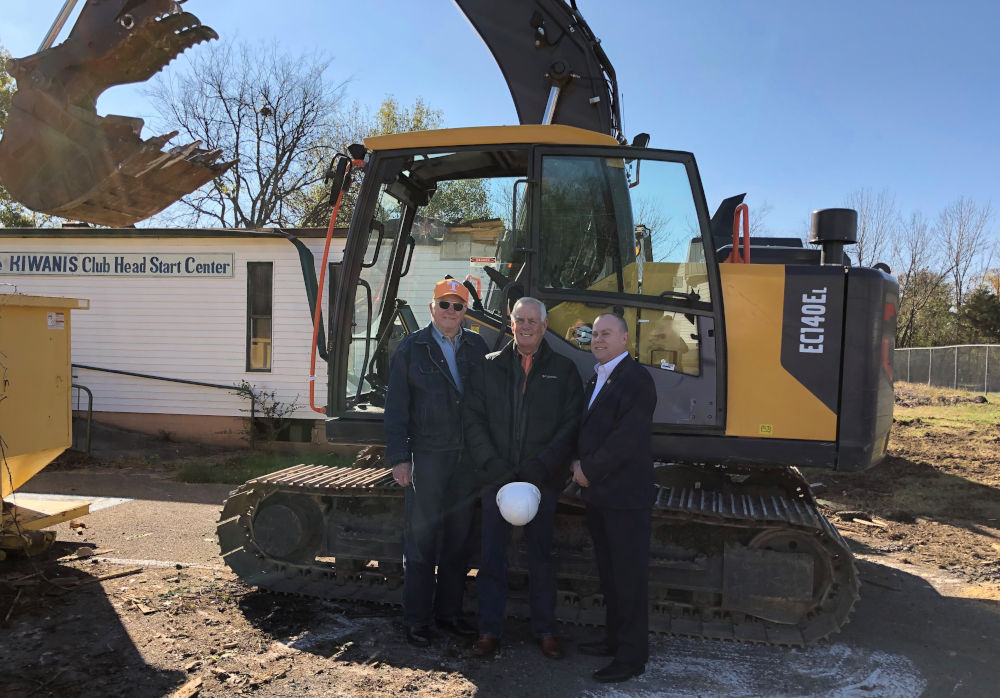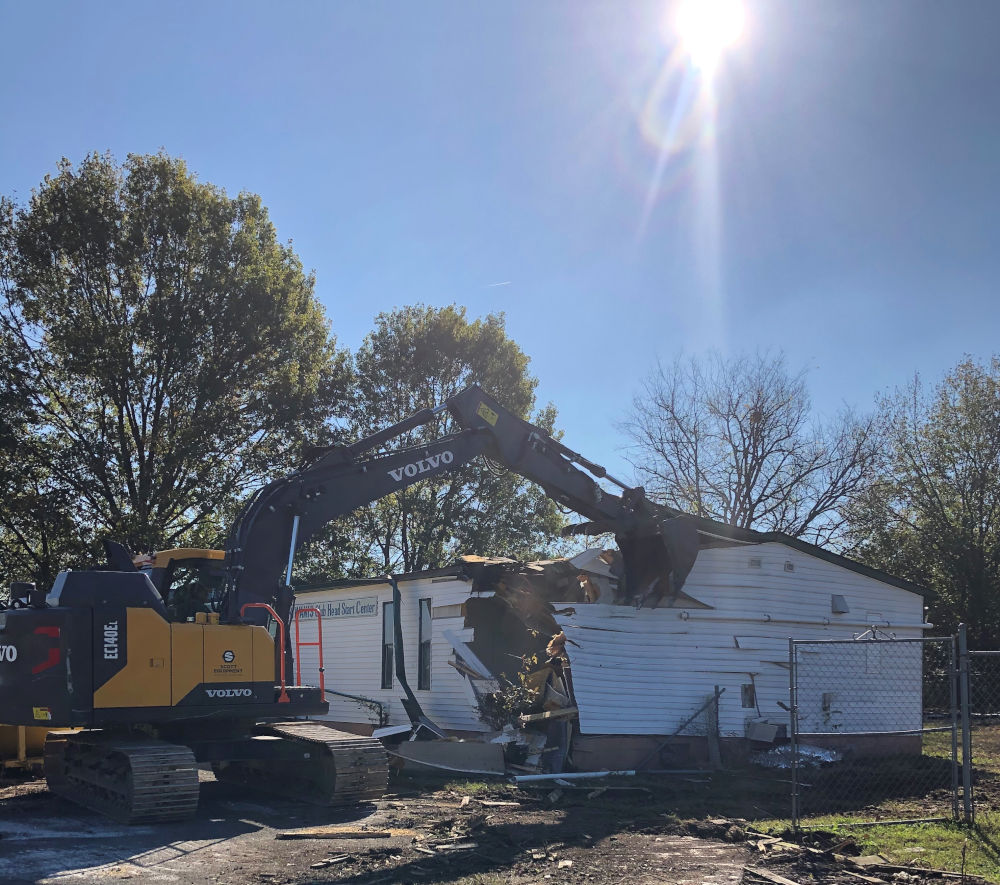SCHRA Nutrition Department Does More Than Just Cook Great Food
 The SCHRA Nutrition Department is multi-faceted. It is not only responsible for feeding our seniors, it is also an event catering organization. This wearing of multiple hats keep Becky Christa, Nutrition Department Assistant Director and Ashley Roland, Program Assistant for Nutrition busy every day. The Department is available to cater public and private events and during the holiday months they are kept extra busy. Becky has been with SCHRA for 13 years and started as the site manager for the Lincoln County Senior Center. Ironically, she took the position as a way to get away from the catering work that she had been doing previously; not knowing that she would eventually stand up the catering department we have today. Ashley has been working for the Agency for 6 years. She started while she was in the Families First program and made such an impact that she showed herself to be the perfect person to hire when a part time position opened up in the Nutrition Department. A fun fact you may not know is that this is not the first time Becky and Ashley have worked together, they were originally co-workers at Shoney’s. This could be part of the reason they have worked so well together keeping the kitchen and program running as smoothly as it does. While Becky looks at catering as her baby, she has been placing more of the responsibilities of the program with Ashley and Ashley has stepped up. This department does not have an off day; they are ready to cater 7 days a week and it is not uncommon for them to have more than one catering event a day. This is in addition to their “day job”.
The SCHRA Nutrition Department is multi-faceted. It is not only responsible for feeding our seniors, it is also an event catering organization. This wearing of multiple hats keep Becky Christa, Nutrition Department Assistant Director and Ashley Roland, Program Assistant for Nutrition busy every day. The Department is available to cater public and private events and during the holiday months they are kept extra busy. Becky has been with SCHRA for 13 years and started as the site manager for the Lincoln County Senior Center. Ironically, she took the position as a way to get away from the catering work that she had been doing previously; not knowing that she would eventually stand up the catering department we have today. Ashley has been working for the Agency for 6 years. She started while she was in the Families First program and made such an impact that she showed herself to be the perfect person to hire when a part time position opened up in the Nutrition Department. A fun fact you may not know is that this is not the first time Becky and Ashley have worked together, they were originally co-workers at Shoney’s. This could be part of the reason they have worked so well together keeping the kitchen and program running as smoothly as it does. While Becky looks at catering as her baby, she has been placing more of the responsibilities of the program with Ashley and Ashley has stepped up. This department does not have an off day; they are ready to cater 7 days a week and it is not uncommon for them to have more than one catering event a day. This is in addition to their “day job”.
Their day job keeps them pretty busy as well. The Nutrition Department, which includes the main kitchen in Fayetteville and the second kitchen in Hohenwald, ensures that every senior in each of our 20 congregant sites and all homebound clients have a hot nutritious lunch 5 days a week as well as preparing the meals and snacks for the Harris Head Start site in Shelbyville. Let’s break down, or more correctly add up, the numbers. In the 2018-2019 fiscal year, the kitchens delivered over 105,000 meals to the 20 different sites. Of those, 47,000 meals were served by our amazing site mangers at the congregant sites and then those same site managers put together over 58,000 meals that were taken out for delivery to our home bound clients. Between the two kitchens in Fayetteville and Hohenwald approximately 825 meals go out each morning. This is before the catering responsibilities start to kick in.
The catering service is the work horse of the Nutrition Department and generates the income that pays for equipment when it is needed, utility maintenance and labor cost of each job. The remaining money or “profit” goes right back into the Nutrition program. Those dollars that are put back into the program are what allows for the congregant meals to be served 5 days each week. Without this money from catering, those seniors would only have those hot meals 4 days a week. These meals that are provided are much more than just a nutritious lunch. Studies have shown the importance of human face to face contact for our seniors. These connections have been shown to lessen the chances of becoming depressed and having feelings of isolation. The sense of community that the sites provide along with the daily visits can mean the world to some of our seniors. If you have ever had an opportunity to volunteer in one of the sites you know how important it is to have this available. This program, both the congregant sites as well the meals that are delivered, plays an important role in allowing seniors to remain in their homes where they feel comfortable and safe. On average, catering works 20 jobs per month. January and July are the slowest months and in January it is definitely needed following the hectic holiday months. In the month of December there were 27 catering jobs alone. Many are probably not aware that Becky and her crew not only prepare and cook the food for catering events, they also deliver when the event is outside of the agency, do all of the set-up and serve the food at their location. While it helps that they have a menu for clients to choose from, Becky is open to making specific food for clients to make it personal. I asked her how catering has grown since she first started the program and she pulled out two binders where the catering contracts are kept. The first binder she brought out was 2009 and it was in a small ½ inch 3-ring binder. Then she brought out the 2019 binder and they had to move to the large 3 inch 3-ring binder and it was full. In addition to all of this whenever we have an event at the Agency, like quarterly Board meetings, they cater those as well and this past year they also catered the agency Employee Day. There is no doubt there are many people who are aware of the great thing we have going on here at SCHRA with the catering department.
A typical day for Becky and her crew is normally just dealing with what may come up that particular day. The big difference for her is that these issues can come up in any of the 13 counties and 20 different congregant sites that we cover. They can include any issue one of the site managers are dealing with and could include having to go to that site to take over if one of the site managers is out ill. She also makes sure that both kitchens are running smoothly and that all food is ordered and ready to go . The Nutrition Department is made up of 2 main kitchens. In Fayetteville there are 5 people that work in the kitchen and three drivers who deliver food to the east side of the region and in Hohenwald there are 3 people that work in the kitchen and three drivers who deliver food to the west side of the region. Basically, we have 14 people that are making sure 825 people have a hot meal at lunch 5 days a week. This is one department that does not have an off day or off time. Now that the holidays are over, both Becky and Ashley are finally able to take some well-earned and deserved time off. Kudos to the Nutrition Department for another great year supporting our communities!
